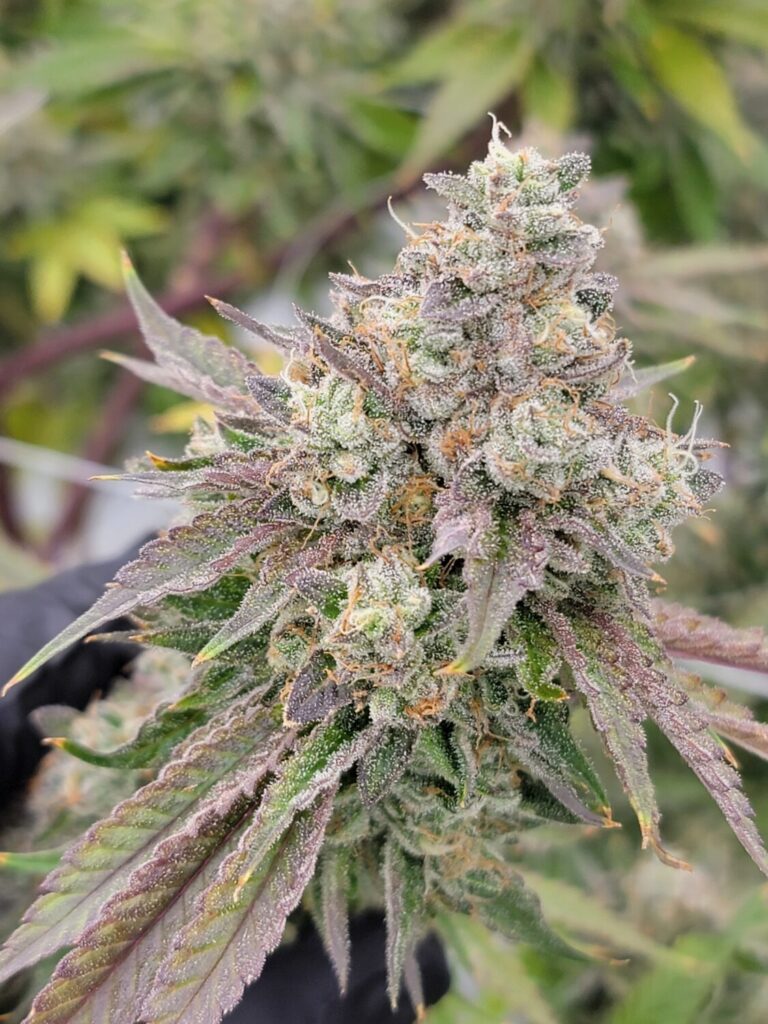Nearly a decade ago, Rohan Marley helped his family take its first steps in the cannabis space, now his personal brand is rolling along strong after launching in Michigan.
Rohan is the middle child of Bob Marley’s nine kids. He and Stephen are the closest in age of the group and were born a month apart in 1972. When it was time for the family to start dabbling in cannabis in the mid-2010s following the first successful legalization initiatives, Rohan took the lead.
The family founded Marley Naturals in 2014. Marley Naturals was originally a partnership between Privateer Holdings. The brand would have some hiccups as it came to market. The family would buy the rights out in 2019 and take full control. Not too long after, Rohan would get the ball rolling on the cannabis element of Lion Order that recently launched in Michigan after a couple of years of pheno hunting before the flower went into full production.
We flew out to Detroit to check out Rohan’s new flowers and hear the lessons learned in California. He kicked things off by describing the vibes associated with Lion Order. They are similar to what the phrase means in Rastafarianism and his father’s music. Particularly, the ideas of strength, courage and righteousness in the face of oppression and adversity.
In the song his father named Lion Order on his final studio album, Confrontation, he would sing on the themes of standing up for your rights and fighting injustice, as he did frequently throughout his career.
After a walk through 305 Farms cultivation facility where the Lion Order line is in production, we sat down with Marley.
“After years of being an entrepreneur and wanting to do things my way, which is things I love, being a part of something that’s more than just cannabis. Being a part of a movement. And that movement is Lion Order and just the philosophy of Rastafari,” Marley told L.A. Weekly.
His goal going in this time was to create something he’d want to smoke and share with his brothers. Marley’s years in the coffee industry have made picking out the notes in aromas a regular thing. With Lion Order, his plan was to hunt down the flavors of his childhood.
He remembered the flavors he would come across in college. He didn’t know what indica or sativa was, he just knew he loved herb. He has spent the rest of his life chasing some of those flavors from his youth, just now it’s for the sake of good business as opposed to just his personal enjoyment.
“For me, it was like a pheno hunt all the time once I left college,” Marley said.
Marley would get his hands on some cannabis in Miami not long into the pandemic that had him thinking, this is really it? Eventually, Marley was introduced to Heavyweight Heads by fellow University of Miami alumni Mike James. James also played six years in the NFL after his time at The U.
“And those guys, we spent about two and a half years trying to develop that taste profile I wanted. They would come in and I’d say that ain’t it,” Marley said. “I started to like get into the whole strain and my own thing to like all right, we need to create our own movement. Because I don’t like the herb that’s out there. I want my own herb of what I like to smoke. So those guys from Heavyweight Heads helped me to develop these genetics here. And when they brought the right one, I knew that was the one.”
That was King Clem, the current flagship strain. The King Clem’s nose profile is somewhere in the middle between a sour and an OG. It’s not quite either, but you can detect certain similar notes for sure. The structure is a bit chunkier than either of them too.

King Clem
Marley knew the King Clem was the one before he even lit it.
“Before you light it, you know they see that people pre-pull it now, when you get all those terpenes and all that flavor. That’s what I love. Then when I spark that and I’m getting that all together, I see that’s the one, so for me, that’s what we create,” Marley said.
Marley said it didn’t take long for them to create the rest of the line after that because they knew what ingredients would help produce the flavors he liked. Marley notes while he liked the more tropical flavor profiles, he still has the OG gassy thing in the mix.
We asked Marley what he thought of the argument that it’s hard for a cannabis brand to be elite in the eyes of the biggest whale buyers without the real strain name and lineage on the bag. He pointed to the traceability back to the farm.
“So if I create my own, like cooking, if I create my own dish and you like my dish, and you’re gonna eat that right? Then you can go there and eat his dish, but this is my dish. This is what I like,” Marley replied.
The conversation moved on to his early efforts in California. He called Marley Naturals a family movement that was ahead of its time. He argued it was one of the first in the game to ever have to deal with licensing and royalties in the midst of our ongoing prohibition of cannabis.

305 Farms
Marley argued that Marley Naturals went through the ups and downs of any startup.
“What I learned from that is that when you come onto my herbs, it has to be my way,” Marley said. “The partners learned some things and they’re doing wonderful things with beautiful accessories. We’re developing the herb.”
He went on to subtly emphasize the difference between the two, noting it’s one thing to have something with a licensing component, it’s another thing to have something that’s your own.

Fans line up for a Lion Order in-store meet and greet.
One of the things we noted was the move to packaging that seemingly would provide longer shelf life with Lion Order compared to Marley Naturals wood-top jars that needed to be shrink-wrapped with a Boveda inside, and it was still a little rough by the time it got to the shop.
Marley explained the packaging was one of the things the family tried on a quest for sustainability that can sometimes make them tricky to work with.
“What’s tricky is like, to work with us, you have to have ingenuity and be able to create things that are following in the family guidelines. Sustainable movement, you know? So we went into the wood and learn that because, obviously, as a consumable, it takes time to get to you, the consumer,” Marley said. “You have to go to the thing, then the journey, then the travel, and so that shelf life has to be preserved a certain way in order to maintain that freshness.”
Marley argued it’s not that the herb is not good. It’s just the way to procure it, in a way to give it a shelf life, is one of the things the family has learned in their quest to be as sustainable as possible.
Marley went on to discuss what it’s been like watching legalization from the context of a Rastafari, essentially getting the right to pray legalized.
“It’s beautiful and we love it because you know, it’s different when you’re driving down the street and the policeman is behind you. You don’t panic if you got the herb. You know that it can be good. Because like, people can create a lot of anxiety over herb. But it’s not really the herb that gives you anxiety, it is the consequences. So when you alleviate that, it’s wonderful. So we’re very happy about the movement, a part of that movement,” Marley said.
Lion Order is currently popping in Michigan, expect to see it in other states in the not-too-distant future.
Advertising disclosure: We may receive compensation for some of the links in our stories. Thank you for supporting LA Weekly and our advertisers.

